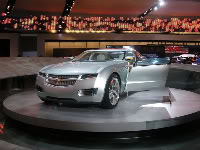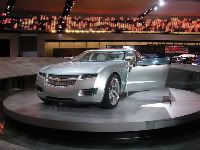Electric Vehicle Adoption and Consumer Fears


Sure, we all face the reality that perhaps EVs (or any of the dozens of other solutions we’re trying to deploy to avert imminent real-world disasters) will be replaced by newer technology. But the metaphor only goes so far.
The world did not become a better place in which to live when VHS somehow beat out Betamax as the video standard. Here, we’re talking about the health and safety of everyone living on Earth – as our dependence on oil deepens and we slip ever further into the associated issues: national security, lung disease, and environmental damage.
It’s true that the consumer doesn’t want to risk buying a Betamax. And I freely confess that very few consumers will make sacrifices for the larger good. But fortunately, we have gas prices rising, and an ever-increasing resentment of the oil companies – along with, of course, a few lonely folks who want to do the right thing.

Craig,
Beside Betamax syndrome concern, early adoption of EVs is affected by the fear of being financially disadvantaged when buying now instead of 2-3 years later when batteries will be better and cheaper. Chevy Volt is said to cut battery price by half in a couple of years.
One solution could be a new marketing strategy: early adopters to be reimbursed the price difference after two years. That money can be considered as a loan to the automaker to improve the technology and the pay back will show that manufacturers stay behind their product and care about their clients. This clause should be written in the purchase contract.
Another solution may be the modularization of the EV. Except for the battery (or other energy storage device) and some controls, all other components in an EV can stay the same for most of its life. If the battery compartment and connectors are standardized, the battery and controls can be replaced and recycled every 5-7 years with minimum costs. This strategy can give sustainability to the whole electric vehicles making and consuming cycle and a lot of confidence to EV adopters.
Changing the EV architecture with every new model will harm this industry and the economy.
Very astute stuff. I hope you’ll be a part of the EV section of the 2GE Community.